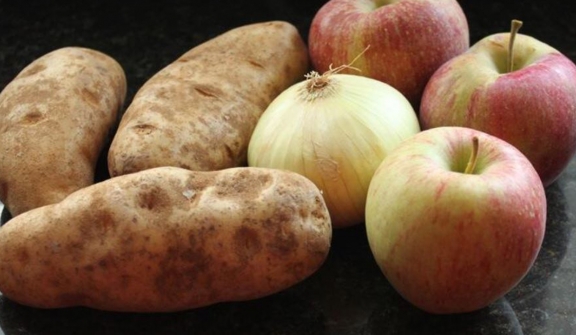
They say that beauty is in the eye of the beholder, but what about taste? Can our perception of taste be swayed by our other senses? It's a known fact that our sense of smell plays a crucial role in how we perceive flavors.
However, numerous people were shocked to discover that apples, onions, and potatoes have the same taste when consumed without a sense of smell. Have you ever wondered why? The article provides you with the answer.
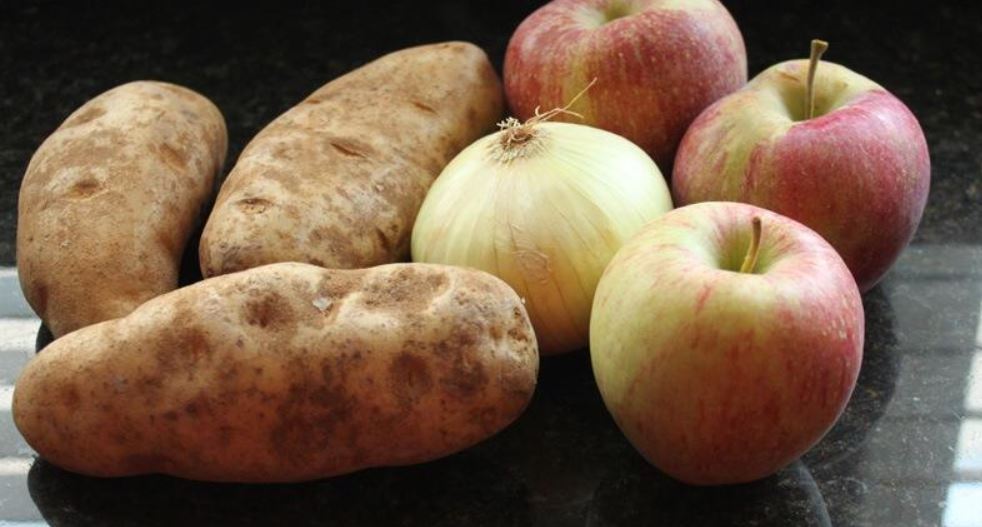
When we smell something, our brain relies on multiple sensory inputs to make sense of the world around us. Additionally, our sense of smell contributes significantly to our perception of flavors. Besides, it enhances our ability to differentiate between various tastes, allowing us to savor a diverse palette of culinary delights.
When the weather is cold, you may experience a stuffy nose, and I'm sure that you can't smell anything. However, your sense of smell plays a vital role in how we perceive flavors during such times. It works in synergy with our taste buds to create a complete sensory experience.
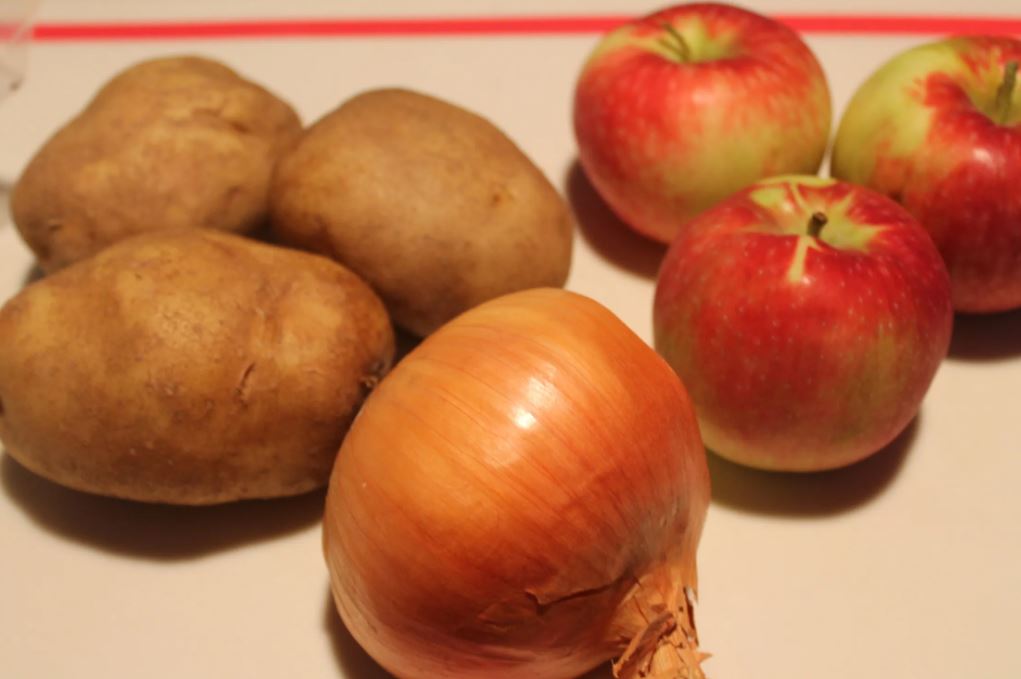
Firstly, we put an apple, an onion, and a potato on three separate plates. You are forced to cover your nose. Make sure you don't smell anything. You start to take a bite of each.
Surprisingly, you may find that they all share a remarkably similar taste—a unique combination of sweetness and blandness. How is this possible?
We all know apples typically evoke a sweet taste; onions and potatoes are known for being more savory and mild. In all of it, we use only our taste to distinguish.
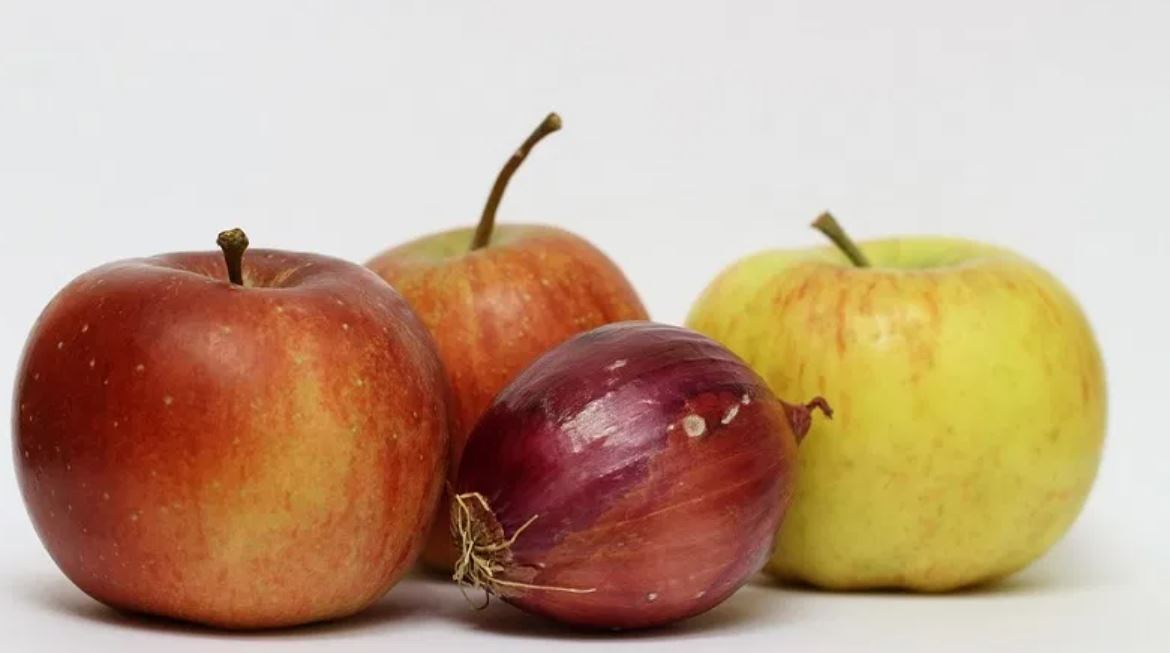
According to science, your taste buds can only detect basic flavors like sweet, sour, salty, and bitter, so it is difficult to differentiate between fruits and vegetables that share similar taste profiles.
According to science, taste perception can shed further light on this intriguing phenomenon.
Your taste buds contain specialized cells that have receptors for different taste molecules. These receptors send signals to your brain, which then interprets them as various tastes.
However, taste alone can be incomplete without the olfactory system.
When we bite into an apple, for instance, its molecules not only stimulate our taste buds but also release aromatic compounds that travel through the back of our throat to the olfactory receptors in our nasal cavity.
This tag-team effort ensures we experience the full flavor of the apple. However, when we bite into an unpeeled onion or potato, the release of these aromatic compounds is minimal, resulting in a more limited taste experience.
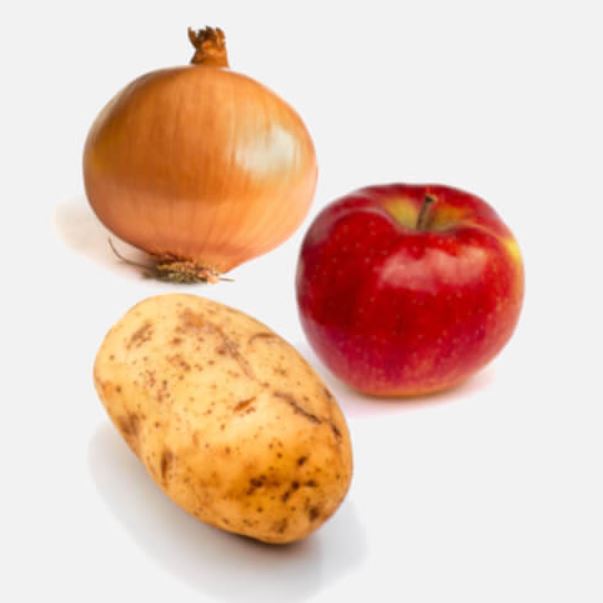
The interaction of taste and smell is well established. Our sense of smell can detect an astonishing range of scents, influencing our perception of taste. Think about how a simple sniff of a fragrant dish can immediately make your mouth water. It's not just your taste buds reacting; your olfactory system is also at play.
The smell is intricately linked to our memories and emotions. Certain aromas can transport us back to specific moments in our lives, from freshly baked cookies to the scent of a loved one.
Our sense of smell is closely connected to the brain's limbic system, which is responsible for emotions and memories. This powerful connection highlights the importance of smell in our perception of taste.
While our taste buds can detect basic flavors, it is our sense of smell that brings depth and richness to our taste perception.
So, the next time you indulge in an apple or bite into an onion, take a moment to appreciate the remarkable dance of flavors happening on your tongue—a symphony orchestrated by our senses.




